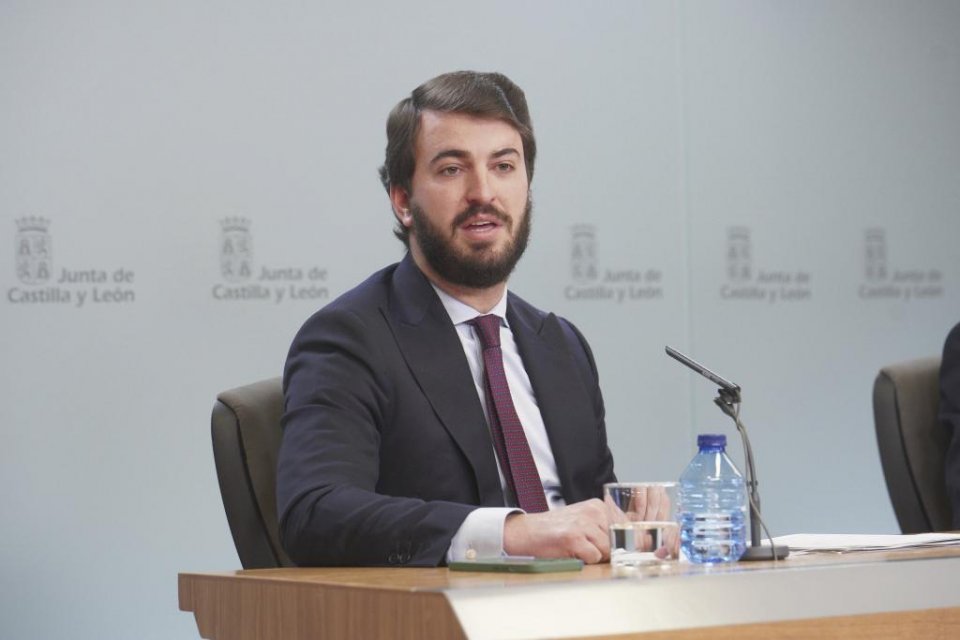A regional government’s move to restrict abortion rights in a large part of central Spain reignited debate on Friday on the issue, and in the run-up to this year’s local elections.
Under the new measures adopted by the right-wing People’s Party (PP) and far-right Vox coalition governing the Castilla y León region, women seeking an abortion there must be offered optional access to unsolicited resources by doctors before starting the procedure. ALSO READ: Spain’s far-right Vox party forms part of regional government for first time.
These include listening to the fetus’s heartbeat, having a 4D ultrasound scan, and getting psychological advice, in a bid to reduce the number of abortions. Patients are free to turn down any of these suggestions.
The ‘fetal heartbeat protocol’, will be offered to women who are between six and nine weeks pregnant, the regional government’s far-right vice president, Juan García-Gallardo of the Vox party explained, with the intention of allowing the parents to emotionally bond with their baby.
García-Gallardo stressed, however, that women would ‘not be forced to listen to their baby’s heartbeat if they don’t want to’. The new measures were presented on Thursday by García-Gallardo.
Spain’s regional governments have jurisdiction over public health policy at a regional level. The country faces local and regional elections in May-June.
‘We are going to offer every parent who wants to see it a real-time video to see the head, the hands, the feet, the fingers. In short, all the parts of the body of the child that is being gestated,’ García-Gallardo said.
The announcement drew strong criticism across Spain, from the central coalition government formed by the PSOE socialists and left-wing Podemos group, and even from the right-wing head of the Madrid region.
García-Gallardo insisted on Friday that the measures would immediately enter into force in Castilla y León, home to around 2.5 million of Spain’s 47 million inhabitants.
According to data from 2021, the number of voluntary abortions grew by 7.2% in Castilla y León compared to the previous year, with 2,597, below the 2,674 recorded in 2019, before the Covid pandemic. Only 217 were made in hospitals, with 59 in public centres or 2.2%.
In response to García-Gallardo, Spanish Health Minister Carolina Darias said that no compromises would be allowed in the field of abortion rights.
Most of the many women ministers in the central government rushed to condemn what they described as an attack on women’s rights — a main political banner for Spain’s left-leaning governing coalition.
Isabel Díaz Ayuso, the PP head of the Madrid region, unexpectedly announced on Friday a new helpline for pregnant women. ‘Women should be able to freely choose the information they wish to get,’ she said.
In Spain, abortion is allowed up until the 14th week of pregnancy, and the country has recently made several moves to strengthen abortion rights nationwide.
Last year, the left-wing controlled parliament passed a law to ban the intimidation of women entering abortion clinics, where anti-abortion groups often used to demonstrate in a bid to make patients change their minds. The country also dumped the requirement for 16 and 17-year-olds to obtain parental consent before terminating a pregnancy.
While Catholicism is not Spain’s official faith, it retains a strong influence over parts of the population. Strongly Catholic for centuries, the country was governed from 1935-75 by the self-described national-Catholic regime of military dictator Francisco Franco.
El vicepresidente de la Junta, @juan_ggallardo, ha anunciado, tras el Consejo de Gobierno de hoy, medidas sanitarias y asistenciales para el fomento a la natalidad y el apoyo a las familias de la Comunidad pic.twitter.com/n7SPHbcIWy
— Junta de Castilla y León (@jcyl) January 12, 2023
Sign up for the FREE Weekly Newsletter from Spain in English.
Please support Spain in English with a donation.
Click here to get your business activity or services listed on our DIRECTORY.
Click here for further details on how to ADVERTISE with us.


